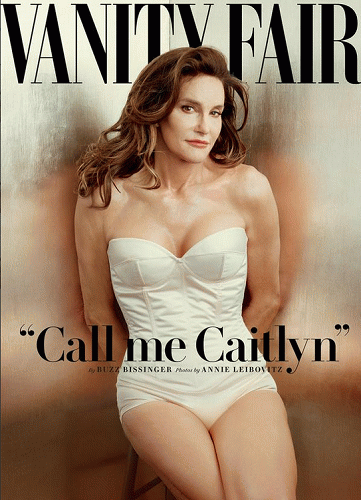The same week that former Olympian Caitlyn Jenner was featured
on the cover
of Vanity Fair, a restaurant in Dallas unveiled its own monument to
advancing gender equality.
Tallywackers, generally described (including on the restaurant's own website) as "the male version of Hooters" finally brought the now-ubiquitous sexually-suggestive sports bar template to a new demographic, serving up typical American fare alongside chiseled, male staff in tight, leave-nothing-to-the-imagination shorts.
This apparently long-awaited counterpart to the Hooters franchise debuted right on the heels of Jenner's transgendered social media cotillion, and provided some revealing insight into America's evolving attitudes toward sexuality and gender issues.
In terms of social media performance, now the standard metric for measuring influence for any individual or organization, Jenner managed to upset President Obama's only recently-achieved Twitter record, gaining more than one million followers within just four hours (Obama's official account managed the feat in a little over five hours on May 19). Of course, Jenner may have benefitted from Obama's precedent, given that the president quickly tweeted at Jenner's new account, alongside numerous other celebrities and Twitter influencers.
Tallywackers, for its part, does not appear to have an active Twitter account, but managed to rack up just over 33-thousand "likes" on its Facebook page in the first few days following its grand opening.
And while Jenner has become a focal point for debate (and ad hominem sniping) over questions about gender and trans individuals, the main controversy visible on the Tallywackers Facebook page seems to whether the restaurant is really targeting heterosexual women, or gay men--and whether both groups can comfortably ogle the staff together.
So is equal-opportunity objectification still a step toward tolerance and inclusivity?
Jenner became notable as an Olympian back in the 1970s, but has since leveraged her celebrity to speak out on behalf of tolerance for trans individuals everywhere. While the Jenner story and magazine spread challenges people to rethink their assumptions about gender, sexuality, identity, and society, Tallywackers challenges its guests primarily just to keep their eyes on their food when they visit.
While possibly opening itself up for attacks by unofficially marketing toward gay men, the financial challenges of a new business don't quite parallel the social challenges Jenner has taken on. As a counterpart to the chain that brought the term "breastaurant" into the American lexicon, Tallywackers has the twin roles of courting the whims of the free market, while reinforcing the cultural norms of reducing individuals to sexual objects.
That "individuals" now explicitly includes men as well as women may not be a significant blow against the industries that prey on casual objectification; but maybe, just maybe, it can create some common ground for understanding. Then again, maybe it just reinforces old attitudes toward women and sex (if the world can accept a male Hooters, the original can't have been that off base, right?) and complicates genuine social progress.
Ultimately, the impact of each of these events will be measured not by the immediate public reaction (and accompanying media furor), but by the enduring legacy they create. And for better or worse, a single magazine spread celebrating a single celebrity will have a hard time competing with the exploitative franchising opportunity represented by the new restaurant.
While Jenner may be earnestly advocating for tolerance and role modeling for other trans individuals, the free market is demonstrating that the marketing truism "sex sells" still holds true--for now.





